Squid Game Season 3: Streaming’s Bloodiest Show Bows Out On A High
The breakthrough South Korean series returns to its brutal best in a twisty, often moving final season.
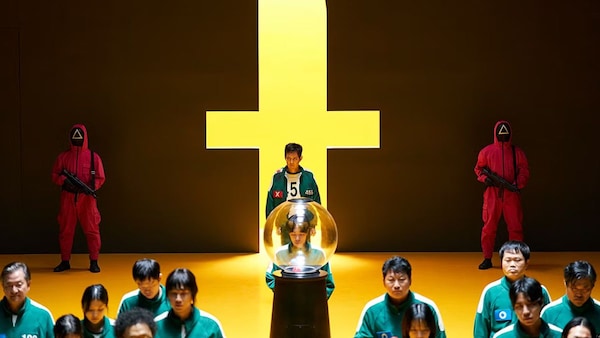
Promo poster for Squid Game 3.
Last Updated: 10.00 PM, Jun 27, 2025
IN THE SECOND EPISODE of Squid Game’s final season, a typically operatic children’s game is given a horribly violent spin. We’ve been here before, but this time round, the banality of the violence is ecstatic, if not profound. It’s not giving away much to say that a game of hide-and-seek is played out with knives and keys. The one who seeks must, quite literally, battle and eliminate the one who hides. It’s the kind of unsparing theatre of violence that has turned this Korean show into a ferocious global cult. To the point that possibly the greatest bit about Squid Game is its choreography of death — a mercurial mix of motive and strategy. This second episode — nearly all of it set inside the confines of a concrete maze — is so caustic, wicked and thrilling it stands alone, as a toast to the series’ nerve-wrecking ruthlessness. Few worlds have trained violence on its audiences in a way that it’s become indispensable as its most alluring lens.
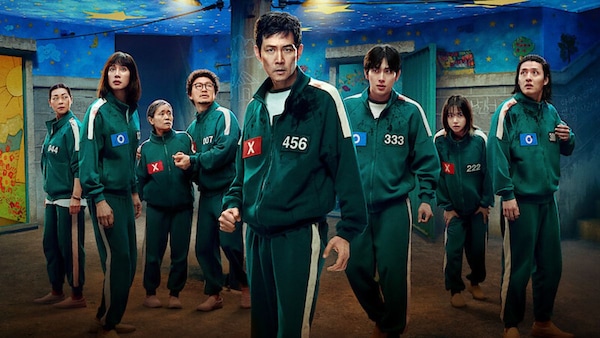
We return, in this third season, to the aftermath of the failed uprising of the second. Gi-hun (Lee Jung-jae) is devastated, speechless after he has neither succeeded nor offered reprieve from his mission to unmask those behind the evil bloodsport. A lot of people, including guards, have died. But the point of this world is, of course, its bespoke nihilism. The idea that death is merely a digital counter; humans, nothing short of characters, are being gamed by the elite. This socio-economic worldview has held up the show’s capacity for satire and social commentary. The depth of that commentary has thinned since the show’s (almost enforced) pivot to Gi-hun’s recreational errands, but in this final season, the bite, the awe-striking sharpness of its framework is back.
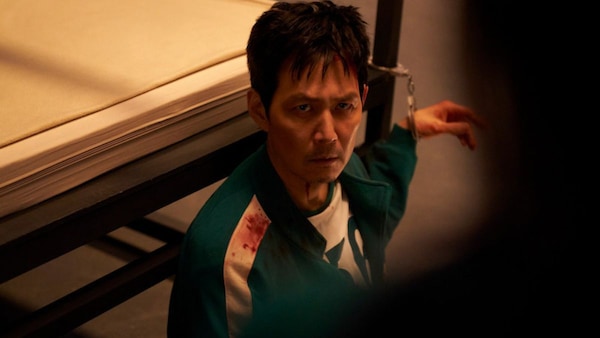
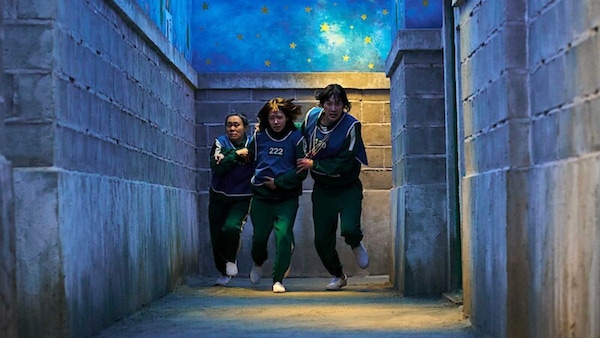
Besides Gi-hun’s newfound despair, there are, of course, sub-plots aplenty. Detective Hwang (Wi Ha-joon) continues to search for the island — where the games are set — and his brother, the mysterious Front Man (Lee Byung-hun). There is a North Korean defector among the ranks, a body-trafficking racket, some unremarkable rich guys who offer opinions from the sidelines, and, of course, the many interesting inter-personal relationships that make the games themselves so engaging. In its final season, the introduction of a wildcard player is likely to shock, provoke and maybe even test your patience with the show’s knee-to-the-head sort of sadism. But then again, it’s this precipice of dehumanisation that this series has always operated from. And by exacting and appealing to emotion within the realm of a world utterly bereft of empathy. It’s the hope that kills, and Squid Game knows how to encourage and crush it time and again.
WATCH | Korean masterpieces like Parasite, The Dominator 2, Minari, and Train to Busan Presents: Peninsula now streaming on OTTplay Premium!
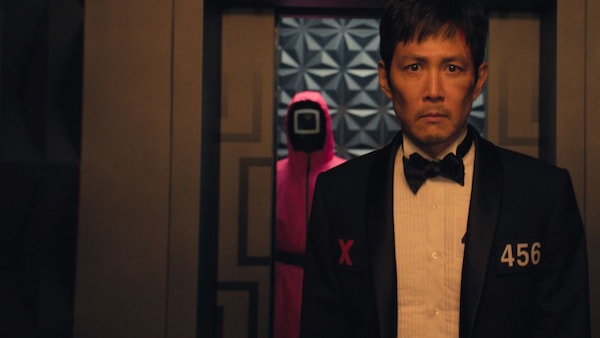

Directed by Hwang Dong-hyuk, Squid Game is a pioneer in marrying economic distress to scathing commentary, with violence playing the shaping hand of its language. Over its three seasons, the bloodletting has become a middle act in itself, but then again, that’s part of the commentary too. Because at this point, it's eerily entertaining to simply watch the characters quarrel, spar and kill among themselves. At times, at great personal and emotional cost. The larger arc of defacing the organisers of said game, and bringing them to some sort of justice, becomes a footnote. But then again, what justice could you even bring to men and women who have orchestrated the wilful manslaughter of hundreds in the pursuit of some sick, brutalising sport? Is this a mad circus of those on the brink, or a recreation of life that inches us closer to the authenticity of its meaning, as opposed to its mirage?

Squid Game has also clearly developed flaws after its breakthrough first season. Some of the sub-plots fail to add up. Detective Hwang, for example, has now spent years on boats searching for this island. It’s the one counter-acting wind of reckoning that, quite simply, blows far too slowly. The other bit is the gratifying nature of the violence itself, which has gone from atrocity to notorious pleasure. It serves as an indictment of the rich who participate — including the ones who watch this show — but it has also gnawed away at the heart, while knives continue to be sharpened on the bodies that fall and are forgotten.
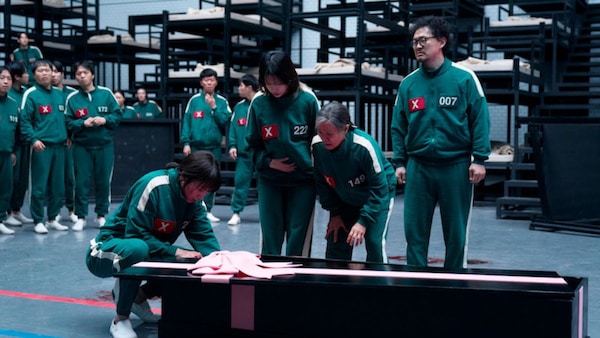
That said, this final season — with a jaw-dropping finale — is still up there alongside some of the most watchable and relevant stories of our age. In fact, its global appeal is testament to Netflix’s sales pitch of turning local stories into global phenomena. To its credit, with a 6-episode final season and relatively lean three laps around that hyper-coloured architectural jigsaw, Squid Game has come, blown our minds, and left while it’s still hot. In this last season, it returns to the brutality of its mechanisms, the inhumanity of its subtext, and its ability to twist the knife, every time you think it’s readying to pull back. It’s the grasp of death, the choke-hold of natural selection, the defeatism of life’s original hand and the lunacy of being asked to hunt and hope, when everyone is actually just prey. And yet it will sorely be missed.
Squid Game season 3 is now streaming on Netflix.



